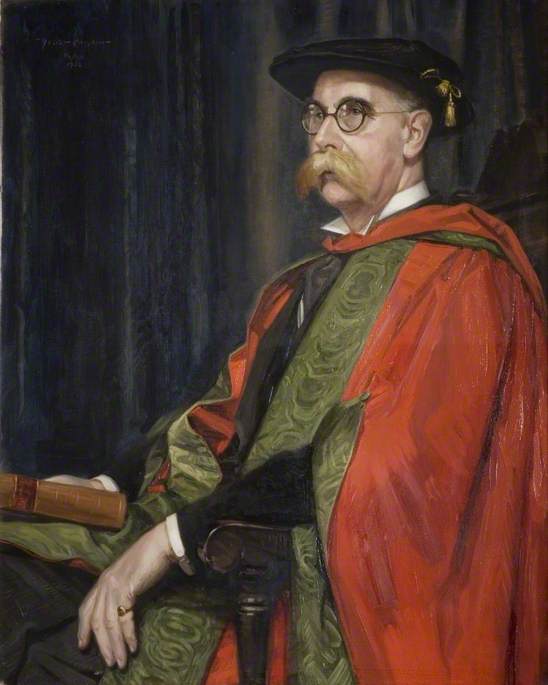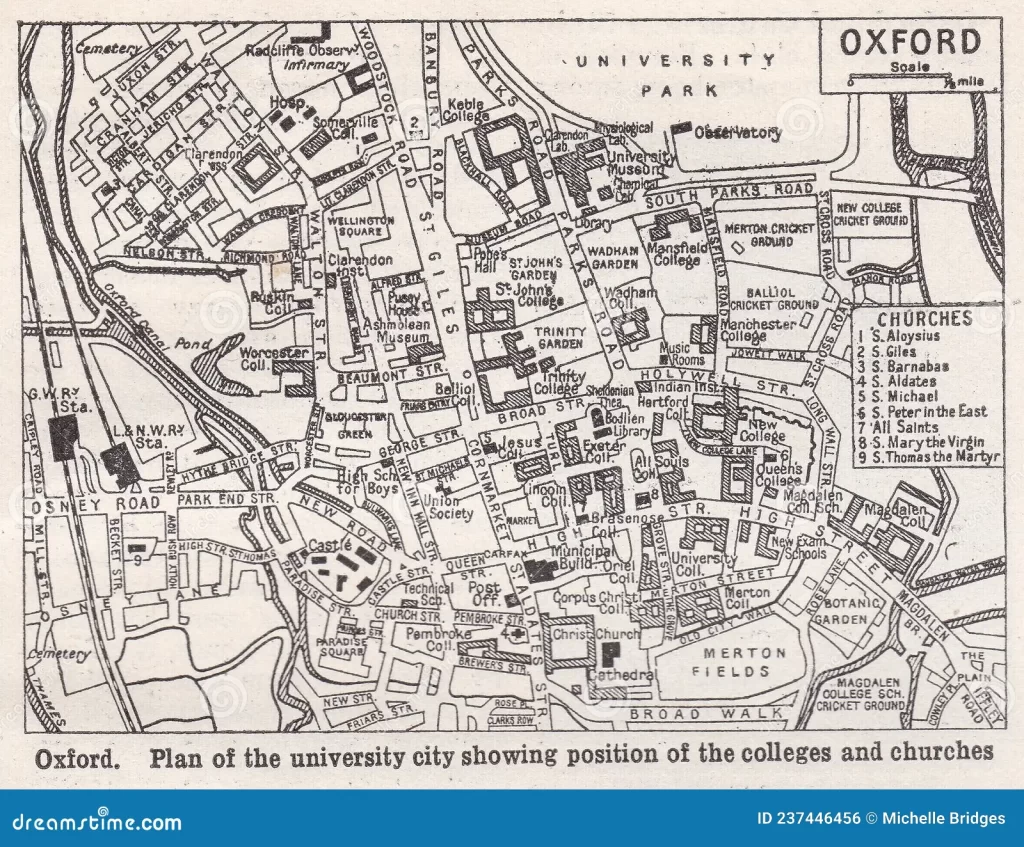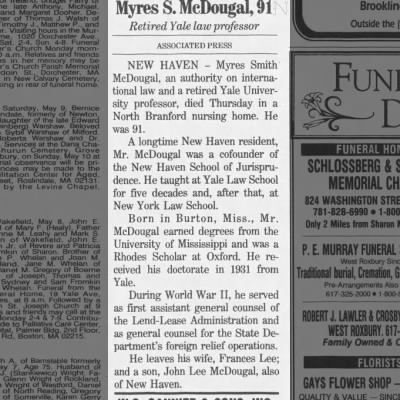Myres Smith McDougal: La Escuela de New Haven y el Derecho Internacional Publico.

Justicia social “en sentido fuerte”
10 junio, 2024
La bella durmiente del bosque en el Teatro Colón: una magnífica obra de arte.
24 junio, 2024Por Hernando V. Cañardo*

Myres Smith Mc Dougal
- Introducción
Myres Smith Mc Dougal nació en 1906, en Burton, Mississippi, y obtuvo su titulo de abogado en la Universidad estatal, sus estudios en Oxford. Allí fue fuertemente influenciado por uno de sus profesores, el historiador del Derecho William Searle Holdsworth.[1] Invitado a dar clases en esa Universidad, prefirió retornar a los Estados Unidos y doctorarse en Yale en 1931.

Professor of Law; University of Birmingham
Enseñó con posterioridad en la Universidad de Illinois, especializándose en derechos de propiedad, escribiendo al respecto,[2] y concibiendo este derecho como vinculado a una planificación integral de los recursos.
Tras retornar a Yale, interrumpe su carrera académica debido a la Segunda Guerra Mundial, sirviendo como asesor en la Lend-Lease Administration y posteriormente en la Office of Foreign Relief and Rehabilitation Operations, antecesora de la United Nations Relief and Rehabilitation Administration, entre 1942 y 1943.
En ese año publica junto a Harold Lasswell, Legal Education and Public Policy: Professional Training in the Public Interest, trabajo que tendrá una repercusión muy importante en la enseñanza del Derecho en los Estados Unidos y donde se observa el germen de sus posterior cosmovisión.[3]
Después de la guerra dedica su atención al Derecho Internacional Público, donde realiza su contribución más importante, en colaboración con Lasswell y sus discípulos. Publica diversos Tratados sobre el Derecho del Mar,[4] el Derecho de la Guerra[5], el Derecho del Espacio Ultraterrestre,[6]y los Derechos Humanos,[7] así como otros temas de la disciplina,[8] en numerosos artículos y libros.
Fue Presidente de la Sociedad Americana de Derecho Internacional en 1958, y de la Asociación de Universidades de Derecho en 1966, Profesor Emérito en Yale donde enseñó durante más de cincuenta años y en la Universidad de New York, falleciendo en 1998.
Junto a Harold Lasswell, funda lo que se conoce como la Escuela de Derecho de New Haven, que concibe al Derecho no solo compuesto por un cuerpo de normas sino como procesos de decisión.[9]

II. El Pensamiento de la Escuela de New Haven
Mc Dougal pretendió desarrollar un sistema legal efectivo que contribuyera a un orden internacional que respetase la dignidad humana en un mundo interrelacionado.
Al respecto afirmó: “From any anthropological perspective, it is easy to observe that humankind is today confronted with not merely some important transnational problems, but that practically all of humankind's important problems are transnational and interconnected in origin and impact.”[10]
De allí que su aspiración fuese crear un marco de investigación que determinase y detallase los problemas de su tiempo, con herramientas intelectuales necesarias para establecer un orden jurídico apropiado.
Analizar su obra en plenitud claramente excede los límites de este trabajo, pero se pueden mencionar, en primer término, algunas cuestiones de lo que en su criterio, debía ser la enseñanza del Derecho Internacional Público. Al respecto, afirmaba claramente que antes de proceder a la enseñanza, es necesaria la investigación.[11]
Insiste en establecer un punto de observación, reconociendo que se es, y que se trata de hacer, un mapa de la realidad, enfocándose en el problema, la contribución a realizar, y los valores , los cuales deben tener por fin un orden con dignidad humana,[12] procediendo a continuación con la investigación.
La función del estudioso del Derecho Internacional es describir e investigar la realidad, interpretando los términos en un contexto general donde se justifica o se pretende imponer determinados valores.[13]
No obstante, el estudioso no puede aislarse de la Comunidad en que vive, de allí que su labor sea clarificar e implementar los intereses comunes o inclusivos demostrando su existencia. Por eso propugnaba que no era verdad que no existieren intereses comunes entre los diferentes marcos ideológicos, pues todos tienen las mismas interdependencias y buscan los mismos valores, lo sepan o no.
En algunos supuestos estas decisiones se toman en base al poder, pero en otros casos con autoridad, por aquellos que se supone que las deben tomar, por estructuras establecidas y constituidas, tal como los tribunales de justicia, árbitros, diplomáticos u organizaciones internacionales que buscan clarificar los intereses comunes.[14]
A su entender el derecho debe unir la autoridad al control. Si solo es autoridad puede ser convertirse en una ilusión, y si es control solamente, es el poder puro y la violencia.
Un jurista no solo debe estar satisfecho con la descripción del pasado sino preocuparse por las demandas de los individuos en el presente así como los medios para satisfacerlas, y en ello radica su responsabilidad.[15] Es necesario el estudio del pasado, saber cómo se llega a la situación o problema actual. Una vez estudiado este pasado, se analizan los factores del problema con todas las variables posibles, proyectando una tendencia para el futuro.
Al determinar los valores, se deben buscar aquellos que escapen a una concepción parroquial o exclusiva, procurando aquellos que contribuyan a la mayoría de los integrantes de la Comunidad Internacional.
¿Cuáles son estos valores? En su concepción son: la libertad, el respeto, la ilustración, la riqueza, el poder, las habilidades, la rectitud, el bienestar y sus interrelaciones a través de procesos y decisiones que facilitan no solo la comprensión de determinados problemas sino que se enfocan en aquellos más importantes.
Para lograr esto hay que determinar cómo se crea y aplica el Derecho Internacional, quien participa en las decisiones que lo crea, sean los actores y autores los Estados, las Organizaciones Internacionales, los grupos de presión, las empresas y los individuos, que demandan distintos valores en diversas comunidades territoriales.[16] Diferentes estructuras políticas, utilizarán varios instrumentos, sean los mismos diplomáticos, ideológicos, económicos o militares. Desde allí, su sistema deducirá la creación y extinción de las fuentes del Derecho Internacional.
Es importante resaltar que su visión es similar a los doctrinarios del Siglo XIX como Paul Pradier- Foderé,[17]o Carlos Calvo,[18] quienes consideraban como parte del Derecho Internacional Publico, al Derecho Internacional Privado y aún al Derecho Constitucional comparado, pues solo en conjunción de estas disciplinas se comprende el sistema.[19]
Por citar solo un ejemplo, es pertinente su opinión sobre la cuestión del Derecho Internacional de los derechos humanos y su incorporación al ordenamiento interno de los Estados Unidos. [20]
A su entender, el estudio de la disciplina no debe centrarse solo en el sujeto Estado, sino en otros actores como las Organizaciones Internacionales, las empresas transnacionales y los individuos. El enfoque Estado-céntrico, si bien válido, no es en su interpretación el único, de allí su análisis profundo y enriquecedor sobre el orden público en los océanos, el espacio exterior o los ríos internacionales.[21]
Cualquiera sea el método de análisis, es necesario entender como el Derecho Internacional se crea y aplica en la práctica, frente a cuestiones como el uso de la fuerza, la contaminación de los océanos o la pérdida de la calidad de vida de las población mundial.
No obstante, su concepción no pudo escapar a la visión nacional y la defensa de los intereses estadounidenses. Esto queda demostrado al justificar los experimentos nucleares en el Océano Pacifico, basado en la libertad de los mares,[22] o las medidas tomadas contra Cuba y la Unión Soviética durante la Crisis de los Misiles de 1962.[23] Asimismo, su apoyo a la guerra de Vietnam fue claro desde el inicio del conflicto, al referirse al incidente del Golfo de Tonkin.[24]
Sus opiniones también tocaron temas que en su momento tuvieron gran actualidad, tal como el apoyo a las medidas del Consejo de Seguridad contra Rhodesia[25] o la intervención humanitaria,[26] especialmente en relación a los Ibos, en la guerra civil de Nigeria entre 1967 y 1970. [27]

III. El Legado
El legado de Mc Dougal ha sido bien resumido por uno de sus discípulos, Richard Falk,[28]al analizar este, la obra cumbre de la Escuela de New Haven: Jurisprudence For a Free Society Studies in Law Science and Policy.[29]
Mc Dougal y Lasswell se enfocaron en el juego o la interrrelación entre las reglas y los procesos sociales, separándose del positivismo de Austin y Kelsen y procurando un orden internacional basado en los principios fundamentales de la dignidad humana. Laswell era un especialista en ciencias sociales, comunicaciones, y manipulacion de la información como dimensión de poder, mientras que MacDougal se enfocaba en los aspectos legales.
Si bien duda de que la obra sea leída ampliamente, entiende que la influencia de la obra de McDougal será duradera por la erudición al tratar las cuestiones de Derecho Internacional y la forma de abordar las mismas.[30]
Como critica, Falk afirma que muchos de sus escritos, algunos ya mencionados, que tratan las pruebas atómicas, la guerra de Vietnam o su participación en representación de los Estados Unidos , ante la Corte Internacional de Justicia , en el caso de Nicaragua,[31] aún elaboradas dentro de su marco doctrinal, fueron esencialmente coincidentes con los intereses de la política exterior norteamericana.
El discípulo de Princeton reconoce que si bien se adhería a su perspectiva legal en teoría, estaba en desacuerdo con la aplicación práctica, e inclusive intentó explicar a su maestro que aplicaba mal sus teorías. Esto tuvo como resultado que sus sucesores tuvieran diferentes interpretaciones.[32] Entre ellos además de Falk pueden mencionarse sin agotar la lista: William Michael Reisman, Andrew Willard, Burns Weston, Oscar Schachter, John Norton Moore, Rosalyn Higgins y Harold Hongju Koh.[33]
McDougal y Laswell reconocían la importancia del poder, pues el Derecho Internacional se enfrenta a esas realidades, volviéndolo irrelevante a través de manipular la ley, o directamente ignorarla frente a la importancia de los intereses nacionales. De allí su concepción que se enfrentaba al realismo basado solo en el poder, producto de la Guerra Fría.
Reconoce que la obra de esta Escuela a través de sus fundadores es una herramienta pedagógica valiosa, pero en su opinión corporeiza un legado de la Ilustración, con énfasis en la ciencia y la razón, que lo sitúa en el mundo occidental, excluyendo a grupos como las mujeres, los no occidentales, los pobres e indígenas, así como al juego entre la ciudadanía y el orden global en el espacio y en el tiempo.
No obstante estas afirmaciones, la contribución de Myres McDougal y sus Asociados, presenta una clara orientación frente a los problemas del Derecho y constituye un sistema completo y coherente para su análisis, cuyo valor es atemporal.
IV. Conclusión
Para finalizar, tomemos un caso práctico y apliquemos una de las variables del sistema de New Haven, con respecto a una cuestión que afectó y aún afecta a la República Argentina: la controversia sobre las Islas Malvinas.
Analizando la misma bajo un punto de observación coherente, podemos afirmar sin lugar a dudas que la guerra de 1982, si bien jurídicamente justificada en base al principio de auto ayuda,[34] debió tener en cuenta no solo el conflicto bilateral en si mismo, sino una lectura del mundo en ese momento histórico, de la Guerra Fría, de los intereses especiales que vinculaban a los Estados Unidos y al Reino Unido, de la política interna británica en ese tiempo, de la negativa a solicitar ayuda a las potencias comunistas, de la escasa ayuda que se recibiría de la América Latina, del balance de poder mundial, en definitiva, así como la ubicación de la Argentina en ese contexto .
Una lectura errada de la realidad, independientemente de la razón jurídica, que la asistía, provocó un resultado desfavorable a la Argentina, el cual se hubiera obviado con un análisis desde un punto de vista que tuviera en cuenta las variables o factores mencionados.

*Profesor Titular Derecho Internacional Público. Pontificia Universidad Católica Argentina “Santa María de los Buenos Aires.”
Profesor Titular Derecho Internacional Público. Doctorado en Ciencias Jurídicas Pontificia Universidad Católica Argentina “Santa María de los Buenos Aires.”
[1] Holdsworth, William Searle A History of English Law in Seven Volumes. Third Edition. Rewritten Boston Little, Brown and Company 1922.
[2] Mc Dougal, Myres Smith. Property, wealth, land: Allocation, planning and development; selected cases and other materials on the law of real property, an introduction.Michie Casebook Corporation.1948. 1213 pages.
[3] Lasswell, Harold D. Mc Dougal, Myres S. Legal Education And Public Policy. Professional Training In The Public Interest. The Yale Law Journal.Volume 52. Number 2. March 1943. p.206:“A first indispensable step toward the effective reform of legal education is to clarify ultimate aim. We submit this basic proposition: if legal education in the contemporary world is adequately to serve the needs of a free and productive commonwealth, it must be conscious, efficient, and systematic training for policy-making. The proper function of our law schools is, in short, to contribute to the training of policy-makers for the ever more complete achievement of the democratic values that constitute the professed ends of American polity.”
Acceso 20 Diciembre 2023
[4] McDougal, Myres S. Public Order of the Oceans: A Contemporary International Law of the Sea. Yale Univrsity Press. First Edition 1962. 1226 pages.
[5] Mc Dougal, Myres S. Feliciano, Florentino. The International Law of War: Transnational Coercion and World Public Order Brill – Nijhoff 1994.1058 pages.
[6] Mc Dougal, Myres S, Lasswell, Harold D. Vlasic, Ivan A. Law and Public Order in Outer Space. Yale University Press 1963. 1147 pages.
[7] Mc Dougal, Myres S. Lasswell, Harold D. Chen, Lung-Chu. .Human Rights and World Public Order: The Basic Policies of an International Law of Human Dignity. 2nd Edition. Oxford University Press. 2018. 1136 pages.
[8] Mc Dougal, Myres S. Reisman, William Michael. International Law in Contemporary Perspective: Public Order of the World Community The Foundation Press, Inc. New Yok. 1981
[9] Mc Dougal, Myres S. International Law and the Future. Mississippi Law Journal. Volume 50. 1979 p. 260: “In its most useful conception, dating far back into antiquity, law is regarded as a process of authoritative decision through which the members of a community seek to clarify and secure their common interests; in any conception which aspires to keep touch with empirical reality, law must be regarded as making some ultimate reference to decision.The making of any decision of community importance,whether by the criteria of authority or of naked power and whatever the size of the community, requires a choice in the present among future alternatives in action and outcome. It is the distinctive task of lawyers functionally conceived, both to establish and maintain a community process of authoritative decision and to direct and manage that process to clarify and secure the common interests of community members in demanded values.”
https://openyls.law.yale.edu/bitstream/handle/20.500.13051/1999/International_Law_and_the_Future.pdf?sequence=2&isAllowed=y Acceso 20 Diciembre 2023
[10] Mc Dougal, Myres S. International Law and the Future p.269.
[11] Mc Dougal, Myres S.Teaching International Law. Georgia Journal of International and Comparative Law Volume 2. Supplement 2. 1972. p.113:”One cannot be a good teacher without the requisite knowledge or intellectual procedures for securing such knowledge and keeping it up to date. The comprehensive theory we seek is thus primarily a theory for inquiry-though hopefully, it may assist in both teaching and decision.”
https://digitalcommons.law.uga.edu/cgi/viewcontent.cgi?article=2183&context=gjicl Acceso 20 Diciembre 2023
[12] Mc Dougal, Myres S.Teaching International Law p. 114 “We do not care how logically he derives such values. He can derive them from ideologies, religion, metaphysics, or whatever, if he travels down the ladder of abstraction toward relations between human beings that are compatible with a public order of human dignity.”
[13]Mc Dougal, Myres Teaching International Law. p. 114: “What the scholar is trying to do is, among other things, to describe what the decision-maker is doing and to account for his decisions in terms of the variables that affect them. The technical words that the decision-maker employs, the conventional rules of law which have been so omnipresent in our discussions here today, are part of the data being described and accounted for; if the scholar allows himself to get lost inthe complementarities, ambiguities, and incomplete references of these technical terms, he will achieve little enlightenment about either the course of past decision or the factors affecting such course. He will go around and around, the people who talk only about sovereignty, domestic jurisdiction, international concerns, aggression, self-defense, freedom of the seas, contiguous zones, and so on without relating these concepts to the larger context in which these terms are used to justifyparticular shapings and sharings of values.”
[14]Mc Dougal, Myres, Teaching International Law. p.116:“ If one looks more closely at this global process of authoritative decision, I think one can see that it, also, is made up of two different kinds of decisions. First, there are the decisions that establish and maintain,or constitute, the whole process. These are the decisions which identify and characterize the different established decision-makers; specify andclarify the broad outlines of basic community policies, with indication of different intensities in degree of demand; establish structure of authority for appropriate performance of different governmental functions;allocate bases of power (in authority and control) among different decision-makers for sanctioning purposes; authorize the procedures for gathering facts or exploring policies necessary to the different kinds of decisions; and secure the continuous performance of all the functions(intelligence, promotion, invocation, etc.) indispensable to the making and application of law. It will be noted that this conception of “constitutive process” is much more ample than the traditional notions of constitutional law as judicial decision within which much Anglo-Americanthinking is confined.The second type of decision refers to those establishing the public order emerging from this constitutive process, the decisions which shape and secure the protected features of the community’s different value processes; the degree to which security is maintained, the clarity with which conceptions of aggression and defense are achieved and enforced; the modalities by which resources are allocated and protected, the degree to which wealth is produced and shared; how human rights are identified and protected; how enlightenment and health are fostered and protected; and so on through the whole range of relevant values.”
[15]Mc Dougal, Myres S. Teaching International Law. p.118:“Neither the practicing lawyer nor the scholar can be content with mere description of the past: Both must be concerned with what people demand and with means for affecting the future to secure such demands.The first task we recommend is, hence, that of the deliberate and explicit clarification of goal values. For the scholar, this means thevalues for which he is willing to take personal responsibility in recom-mending to the different communities of which he is a member. To the degree that economy permits, every particular choice recommended should be related to all the interests it affects and its larger community contexts.”
[16] Mc Dougal, Myres S. Teaching International Law. p.121: “The map we recommend begins with inquiry about constitutive process. What are the decisions that establish this process, that determinehow international law is made and applied? Who participates in the making of these decisions? Nation-state officials, international governmental organizations, political parties, pressure groups, private associa-tions, individual human beings? What characteristics of these participants predominantly affect their decisions? From what perspectives do the effective elites who maintain this process move? What are their demands for values, their identifications with different territorial communities and functional groups, and their expectations about the conditions under which they can achieve their demands? In what degree are they able to perceive, and act upon perceptions of common interest?”
[17] Pradier –Foderé, Paul. Traité de droit international public européen et américain, suivant les progrès de la science et de la pratique contemporaines. A. Durand et Pedone – Lauriel Paris. 1885.
[18] Calvo, Carlos. Le droit international théorique et pratique : précédé d’un exposé historique des progrès de la science du droit des gens. Quatrième Edition. Guillaumin et Cie. Paris 1887.
[19] Mc Dougal, Myres S. Teaching International Law. p.122: “ […]It is obvious that in-quiry of this kind would make irrelevant many of the traditional distinctions between public international law,. prívate international law, and comparative constitutional law. Unfortunately, there has been too little scholarly inquiry from these perspectives to permit the detailed completion of such a map.”
[20]Mc Dougal, Myres S. Leighton, Gertrude C. K. The Rights of Man in The World Community. Consttutional Illusions Versus Rational Action. Yale Law Journal Volume 59 Issue 1 1949 p. 518: “Theconcern of the peoples of the world for human rights and the international character of such rights for the purposes of international law have already been sufficiently demonstrated. Nothing in the context of the creation of our Constitution or in the subsequent history of our constitutional development offers any barrier to the conclusion that human rights are equally of international concern for exercise of the treaty power. The constitutional framers plainly foresaw the possibilities of unanticipated development in the scope of the treaty power, as Madison’s reluctance to specify its content shows: The object of treaties is the regulation of intercourse with foreign nations and is external.I do not think it possible to enumerate all the cases in which such external regulations would be necessary. Would it be right to define all the cases in which Congress could exercise this authority? The definition might and probably would be defective.They might be restrained by such a definition from exercising the authority where it could be essential to the interest and safety of the community. It is most safe, therefore, to leave it to be exercised as contingencies may arise.It is both certain that the framers could not have foreseen as the subject of treaties such items as patents, copyrights, health, drugs, labor relations, commercial aviation, armaments, and a host of matters which have become questions of international concern since 1787, and equally clear from Madison’s remarks that they did not see external” matters as a fixed and unalterable category.”
[21]Mc Dougal, Myres S. Teaching International Law. p.123:“Still another way of organizing inquiry about public order decisions is in terms of the protected enjoyment of resources. This is the way in which colleagues and I have made studies of the “public order” of the oceans, outer space, air space, and international rivers.With respect to any major resource or domain, one may ask how access is obtained, how particular resources are allocated for inclusive or exclusive enjoyment, how law is made and applied for particular interactions in enjoyment, how minimum order is maintained, and how potentially conflicting enjoyments are accommodated.”
[22] McDougal, Myres S. Schlei, Norbert. The Hydrogen Bomb Tests in Perspective. Lawfyul Measures For Security. Yale Law Journal. Volume 64. Number 5.1955 p. 710.” Without at least a portion of the world defended in its freedom it would be folly to talk of freedom of the seas and the welfare of dependent peoples, both impossible to isolate from the freedom and welfare of a whole interdependent free world. The only rational policy for proponents of human dignity today is to demand, and to demand from a strength which insures respect, not merely spurious or naive legalisms and not merely freedom for navigation and fishing and the narrowly conceived and unrealistically isolated welfare of a few scattered peoples, but workable prescriptions and institutions for global disarmament and a world public order which will afford opportunity for the increasing freedom and welfare of all peoples in the full exploitation of all the world’s riches.”
[23] McDougal, Myres S.The Soviet-Cuban Quarantine and Self Defense. American Journal of International Law. Volume 57. 1963 p.603: “Even this impressionistic recall of some of the more salient featuresof the larger context of threat and response should suffice to suggest that a third-party observer, genuinely concerned to clarify the common interests of all peoples, could reasonably conclude that the action taken by the United States was in accord with traditional general community expectations about the requirements of self-defense. The flow of pertinent comment and decision since the incident would indeed seem to confirm that this has been the overwhelming conclusion of world public opinion. In a better organized world, mankind might be able to dispense with a conception of self-defense which confers upon a claimant target state asmuch initial discretion as does the conception so long honored incustomaryinternational law.Until that better organization is more nearly achieved,the task which confronts free peoples is, however, that of clarifying and applying a conception of self-defense which will serve their common interests in minimum order without imposing upon them paralysis in the face of attacks from community members who do not genuinely accept the principle of minimum order. The importance of the incident of the Soviet-Cuban quarantine is in its indication that such a clarification and application can effectively be made and that free peoples do not, as some have insisted, have to choose between the historic restraints of international law and their own survival.”
[24]McDougal Myres S. Authority To Use Force in the High Seas. Naval War College International Law Studies. Volume 61. En Role of International Law and An Evolving Ocean Law Richard B. Lilich and John Norton Moore Editors 1980. p. 561: “The Tonkin Gulf incident came in1964, as I recall. As a layman I’m not as familiar with the fact here as you may be ‘. but it is my understanding that two of our warships were attacked upon the high seas some 30 miles off the shores of North Vietnam by torpedo boats infog or darkness and that we responded in two ways. First, we struck back at the boats. the torpedo boats, and destroyed a number of them; secondly, we later bombarded certain parts of the North Vietnamese shore. All this was before we were as deeply involved in the hostilities as we now are. With respect to the immediate reaction to the torpedo boats, I don’t think there can be the slightest doubt . This can be put under self defence or even under self help that we were discussing earlier.Here our assets, our bases of power are being attacked; hence, we can use such force as is necessary and proportionality to protect them.With respect to the bombardment of the shore, a question is raised comparable to that raised by the Israeli occupation of Syria: Whether in assertion of self defense a state can go beyond the immediate repelling of the attack and prepare itself to prevent attacks in the future . I gather that our objective of hombarding the shore was simply to discourage future incidents of the same kind – to demonstrate our dete’rmination to be there, to assert our rights both to enjoy the oceans and to assist South Vietnam if we chose to.The important question is: Was the bombarding that we did reasonably proportional to these perfectly lawful purposes? Subsequent events would appearto have answered very definitely in the affirmative At that time we did not know how deeply China was involved or how deeply Russia was involved.We didn’t really know who the enemy was. Extreme measures could reasonably be said to he necessary to discourage whoever was engaging inthese attacks. Since that time the NorthVietnamese of course, have openly attacked South Vietnam, and we have gone to the defense of South Vietnam.The mere fact that the attacks have continued and intensified gives us, I think, an appropriate verdict of both necessity and proportionality.”
https://digital-commons.usnwc.edu/ils/vol61/iss1/42 Acceso 23 Diciembre 2023
[25]Mc Dougal Myres S. Reisman, William Michael, Rhodesia and the United Nations: The Lawfulness of International Concern. American Journal of International Law. Volume 62.1968.p.18: “It must, accordingly, be concluded that the Security Council decisionimposing mandatory sanctions in the Rhodesian situation, contrary to the vigorous criticisms which have been asserted of it, makes an entirely appropriate relation of the facts before the Council to all the relevant basic community policies embodied in the United Nations Charter. In terms of substantive merits, the decision realistically recognizes that in the contemporary world, international peace and security and the protection of human rights are inescapably interdependent and that the impact of the flagrant deprivation of the most basic human rights of the great mass of the people of a community cannot possibly stop short within the territorial boundaries in which the physical manifestations of such deprivations first occur.”
[26]McDougal Myres, S. Authority to Use Force on the High Seas, Naval p. 560: “I’m ashamed to confess that at one time I lent my support to the suggestion that Article 2(4) and the related articles did preclude the use of self-help less than self-defense. On relection, I think that this was a very grave mistake, that Article2 (4) and Article 51 must be interpreted differently.In the absence of collective machinery to protect against attack and deprivation, I would suggest that the principle of major purposes requires an interpretation which would honor self-help against prior unlawfulness.The principle of subsequent conduct certainly confirms this. Many states of the world have used force in situations short of the requirements of self-defense to protect their national interests. ”
[27]Reisman, William Michael. Memorandum Upon Humanitarian Intervention to Protect the Tbos, (unpublished paper written with thecollaboration of Professor McDougal, 1968), pp. 15-16. En Lilich Richard B. Intervention to Protect Human Rights. Mc Gill Law Journal Volume 16 Number 2 1969. p 212.
[28] Falk, Richard. Casting The Spell: The New Haven School of International Law.Yale Law Journal Volume 104 .1991 pp. 1991-2008
https://openyls.law.yale.edu/bitstream/handle/20.500.13051/8889/67_104YaleLJ1991_May1995_.pdf?sequence=2&isAllowed=yAcceso 26 Diciembre 2023
[29] Lasswell, Harold D., McDougal Myres S. Jurisprudence for a Free Society: Studies in Law, Science, and Policy. New Haven, Connecticut, New Haven Press/Martinus Nijhoff Publishers. 1992. 1588 pages
[30] Falk, Richard.Casting The Spell: The New Haven School of International Law p. 1997: My view is that A Jurisprudencefor a Free Society will not be widely read or relied upon, except by those who were directly exposed to the pedagogic spell cast by McDougal and Lasswell’s special variant of enchantment. Why? The text on its own is too idiosyncratic and demanding to engage general readers, and requires excessive effort to achieve the practical purpose of promoting a useful and ethically attractive approach to the place of law in the policy process.”
[31] International Court of Justice Case Concerning Military and Paramilitary Activities in and Against Nicaragua.Nicaragua v. U.S. Represented By: United States: […]
Mr. Myres S. McDougal, Sterling Professor of Law Emeritus, Yale University, Yale Law School, New Haven, Connecticut; Distinguished Visiting Professor of Law, New York Law School, New York, New York
https://law.justia.com/cases/foreign/international/1984-icj-rep-392.html
[32]Falk, Richard. Casting The Spell: The New Haven School of International Law.p. 2001: “Finding myself over the years in the odd position of adhering generally to the McDougal jurisprudential outlook, yet consistently in sharp disagreement on policy applications,” I tried on several occasions to convince my erstwhile mentor that he misunderstood, and hence misapplied, his own theory. Of course, such a tack involved hubris on my part, but Mac, with his exemplary loyalty to former students and his unfailing offstage humor, seemed, or at least so I imagined (perhaps vainly), almost to accept this effort to deny any claims of policy “truth” deriving from his framework of inquiry. In any event, whatever McDougal did or didn’t believe, the effort to resolve policy controversy by scientific inquiry has not succeeded. Opposing lines of interpretation by individuals of comparable intelligence and virtue can reach utterly opposed policy conclusions on controversial matters even as they acknowledge their indebtedness to the McDougal and Lasswell jurisprudence.”
[33] Hongju Koh, Harold Is There a “New” New Haven School of International Law The Yale Journal of International Law Volume 32 2007 p.559-573
https://legal.un.org/avl/pdf/ls/Koh_IL_Article1.pdf Acceso.23 Diciembre 2023.
[34]McDougal Myres, S. Authority to Use Force on the High Seas, Naval p. 560: “I’m ashamed to confess that at one time I lent my support to the suggestion that Article 2(4) and the related articles did preclude the use of self-help less than self-defense. […]Many states of the world have used force in situations short of the requirements of self-defense to protect their national interests. ”




